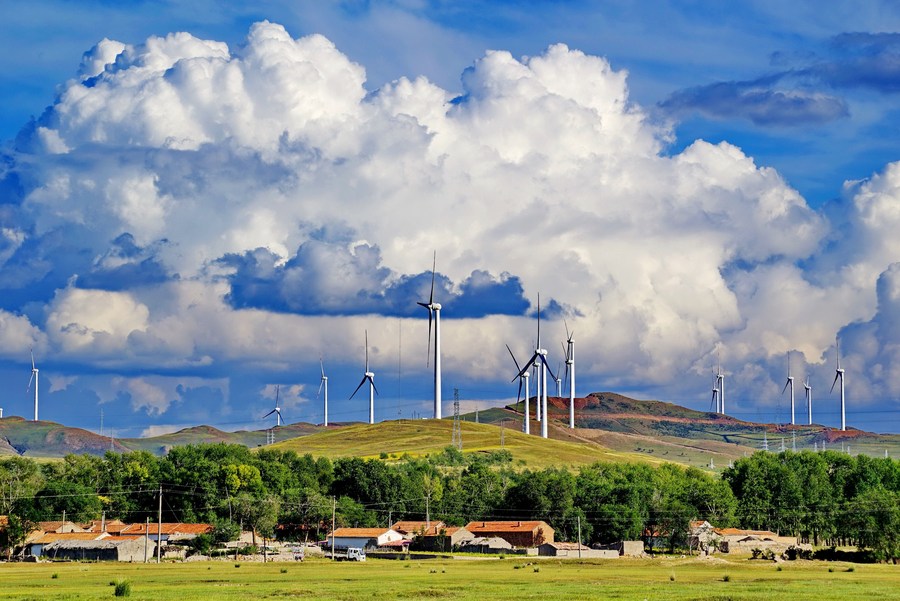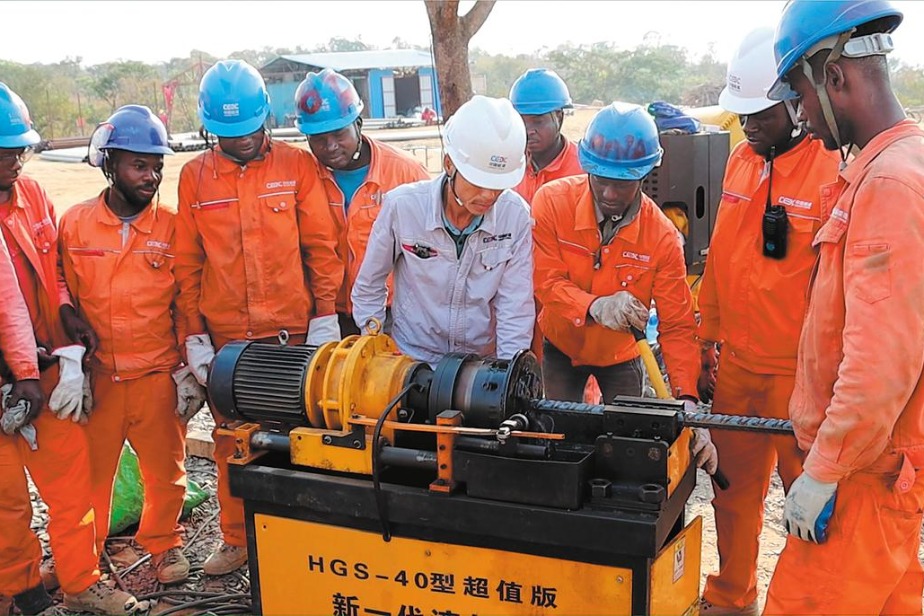China sets good climate example for all: Envoy


Pakistan's chief climate negotiator and permanent representative to the United Nations said China has made remarkable progress toward renewable and sustainable energy and has set an example for developing countries in fighting climate change.
"China has set the example of demonstrating that it is possible to move toward renewable energy at a very rapid pace," Munir Akram, who is also chairman of the Group of 77 and China, told China Daily in an exclusive interview. The G77, which got its name from its 77 founding members, is now a group of 134 developing countries at the United Nations.
"And that is what is needed for developing countries. If they are not going to repeat the same mistakes of polluting their own atmosphere, they have to move to a more sustainable energy requirement for infrastructure," Akram said.
China has made significant strides in renewable energy production to improve its energy structure. In 2021, China invested $380 billion in clean energy, more than any other country, accounting for nearly half of new renewable energy investment worldwide.
China has been at the forefront of the innovation and installation of renewable energy, whether it is hydropower, solar power, wind power or nuclear power. All of these are now greatly contributing to China's own energy metrics, Akram said.
From 2012 to 2021, China enjoyed average economic growth of 6.6 percent with an annual increase of 3 percent in energy consumption. Carbon dioxide emissions per unit of GDP fell by 34.4 percent, and energy consumption per unit of GDP decreased by 26.4 percent, equivalent to saving 1.4 billion tons of standard coal.
"Developing countries work in close cooperation with China to acquire some of these renewable energy capabilities through cooperation on a bilateral and multilateral basis," Akram said.
They would obviously "benefit greatly from cooperating with China and learning from China and the provision of Chinese support to the creation of these new capabilities in the developing world", he added.
South-South cooperation between China and other developing countries will "continue and will contribute to the transition that is required in energy from a fossil fuel economy to a renewable and green economy. But the responsibility of industrialized countries, which have contributed the most to global warming and climate change — those responsibilities remain. We will continue to insist on the contribution from the industrialized North to finance technology and capacity building in developing countries", Akram said.
A long-awaited "loss and damage" fund was approved on Nov 19 at the 27th session of the Conference of the Parties (COP27) to the UN Framework Convention on Climate Change held in Egypt's Red Sea resort of Sharm El-Sheikh.
For more than three decades, developing countries, especially small island countries and low-lying nations seen as most vulnerable to climate change, have sought money to pay for loss and damage caused by global warming. But rich countries have historically resisted such calls, fearing they could be held liable for billions of dollars in damages from their emissions.
Akram said developing countries haven't contributed to global warming. Industrialized nation policies over the last 150 years have fueled global climate change, leaving developing countries, who are not responsible for the damage, suffering from the impact.
"They should be assisted to recover from such disasters," he said.
Pakistan was hit by devastating floods this summer that scientists say were made worse by global warming, killing more than 1,500 people and leaving one-third of the country underwater and causing $30 billion in damages. Pakistan contributes less than 1 percent of the world's planet-warming emissions.
At the 2009 COP15 meeting in Copenhagen, wealthy countries promised that by 2020 they would transfer $100 billion per year in climate finance to help poorer countries. They are still falling short by tens of billions of dollars annually.
"There are a lot of promises which have been made in Paris, in Glasgow, which have not yet been fulfilled," said Akram. But climate change is a global issue, and developing countries need help to address the impact of climate change and to adapt to the damage, or the whole agreement on global climate action will fall apart, he said.
It is hoped that industrialized countries will now see that it is essential to keep their promises, Akram said.
The "loss and damage" fund approved at COP27 is "a manifestation of the principle of climate justice for developing countries", he added.
- Guests from around 30 countries and global bodies attend Beidou summit in Hunan
- Hunan University preserves legacy of wartime history
- Former Shanxi official faces bribery charges in Beijing
- China-led geoscience projects in Saudi Arabia make substantial progress
- 'Chinese Bridge' contest showcases 76 international students in Tianjin
- Jiangsu farmers celebrate bumper harvest with festivities and flavors





































